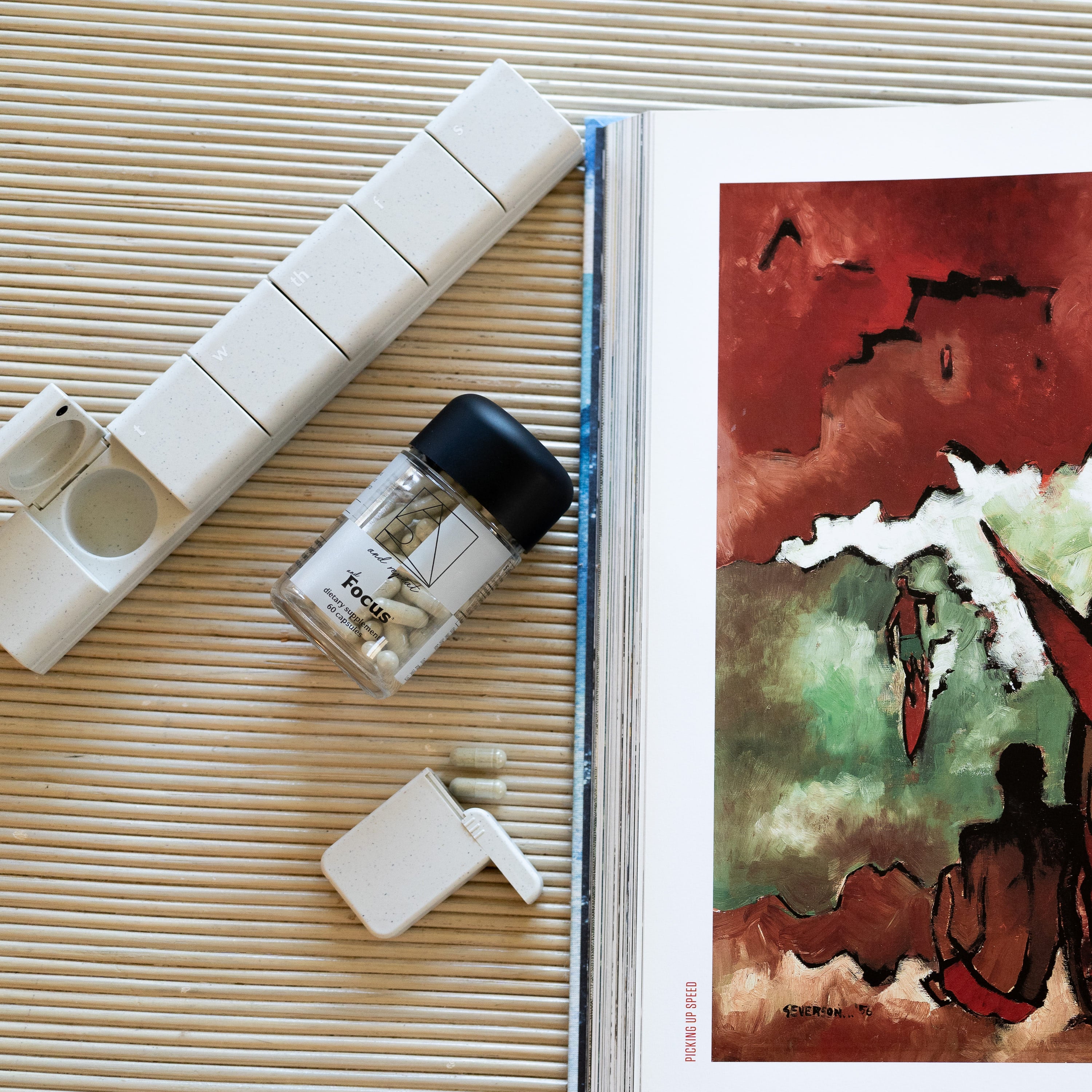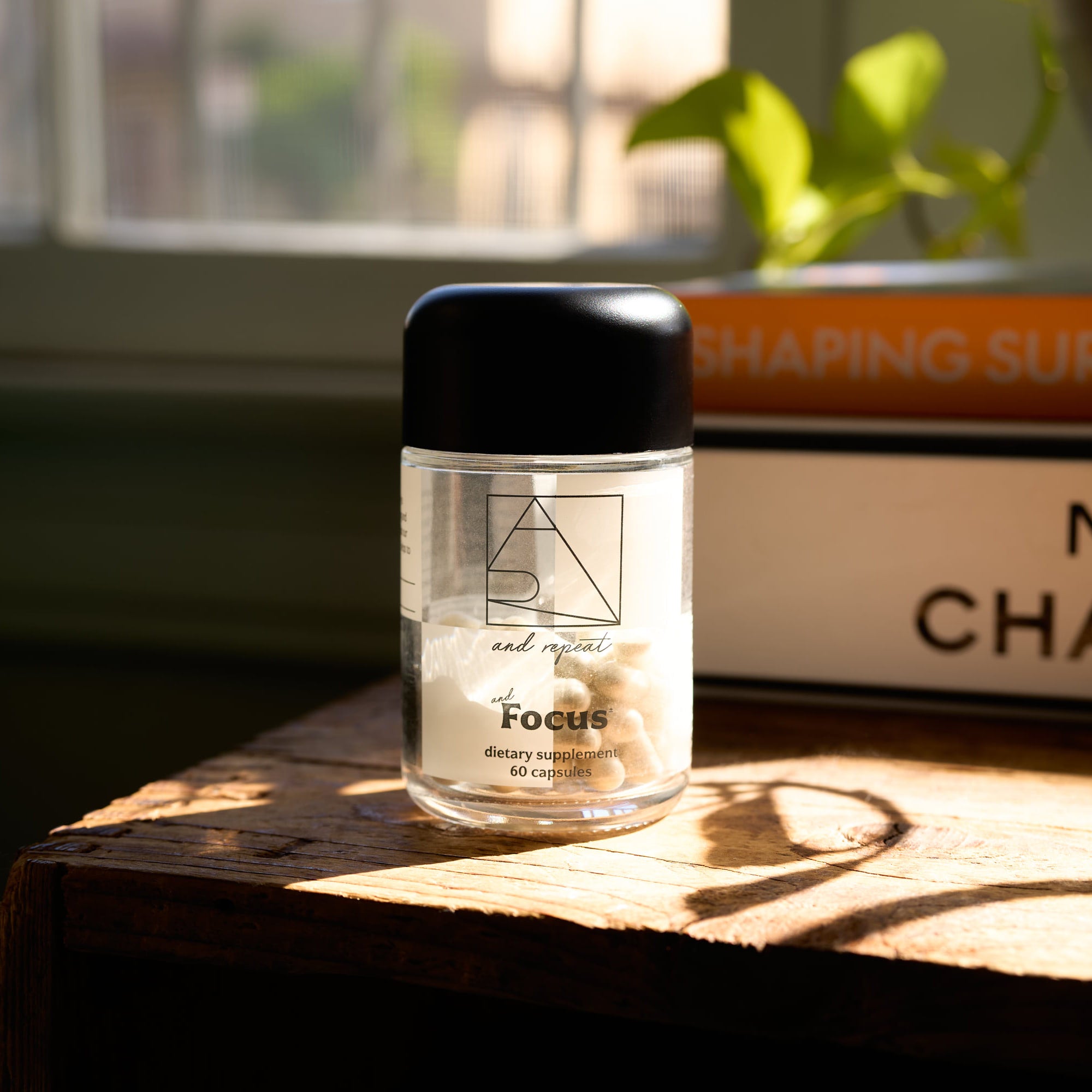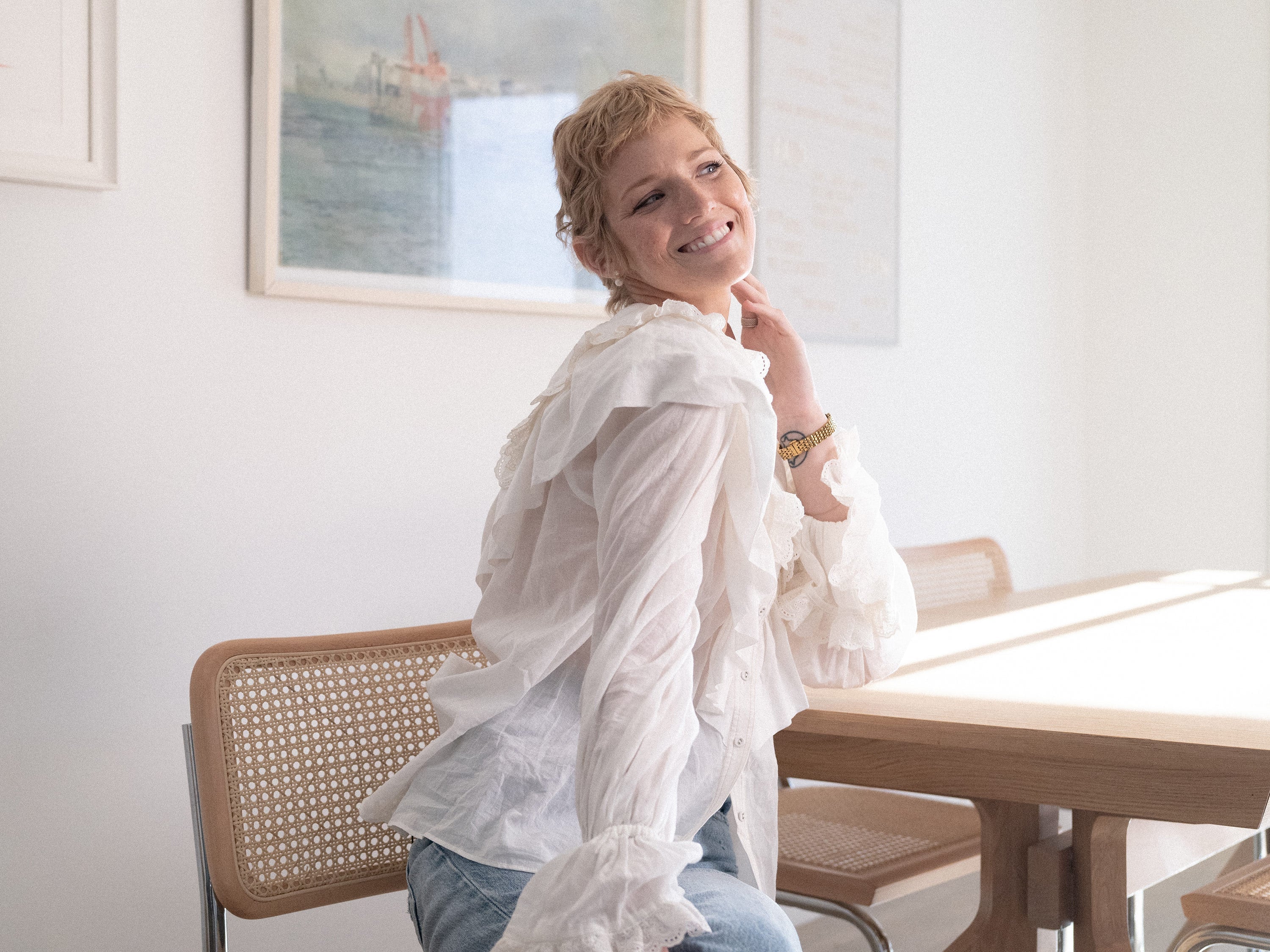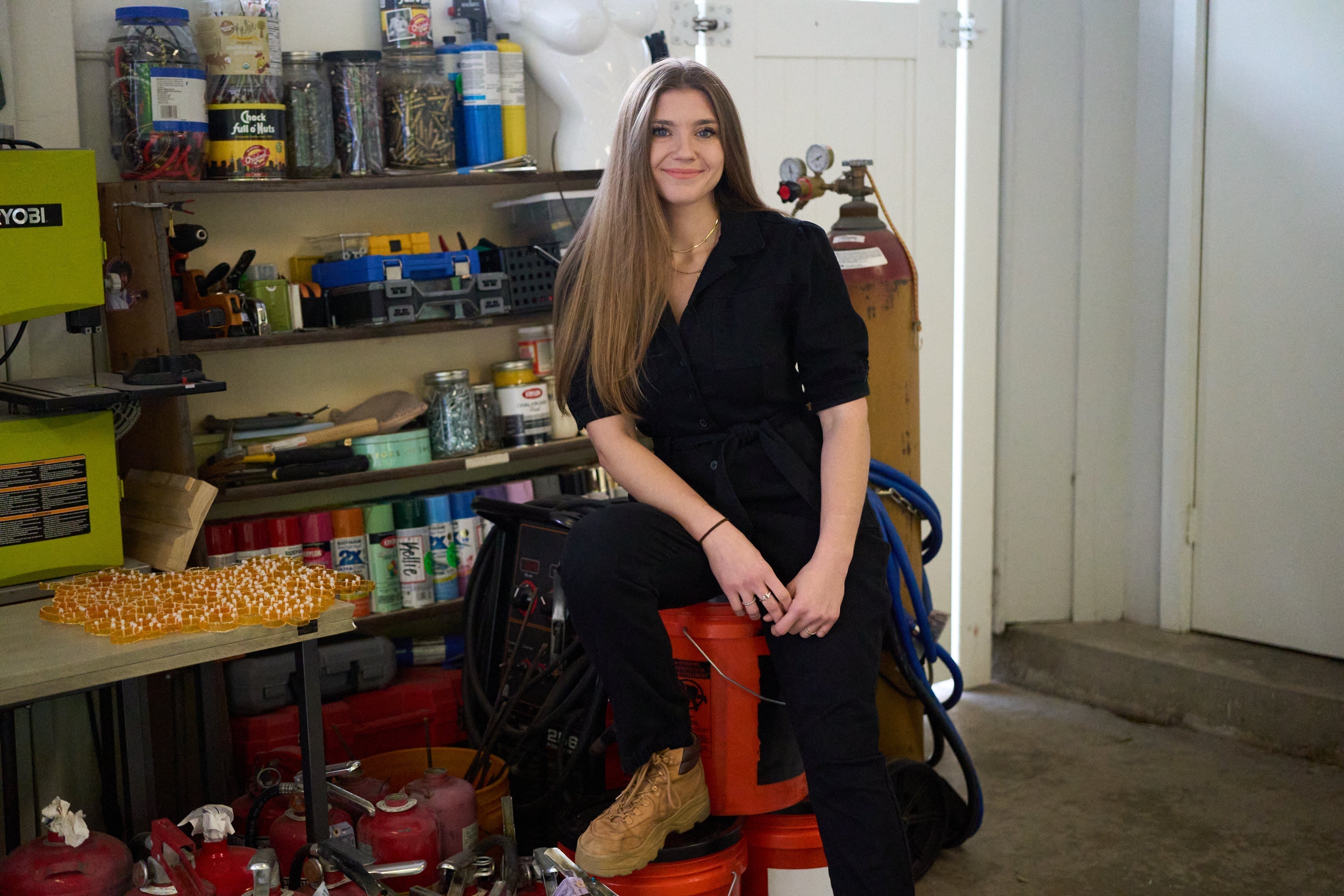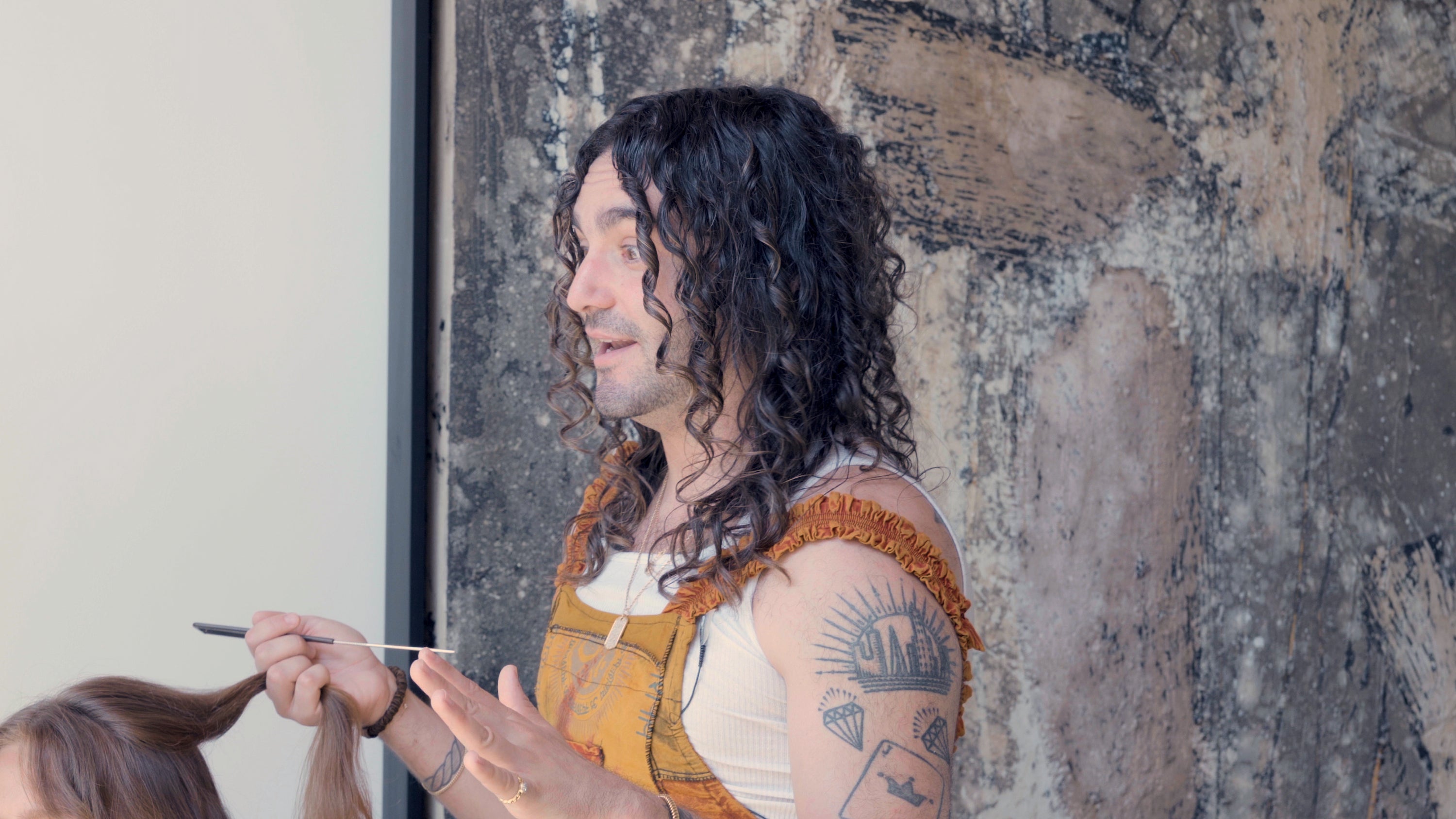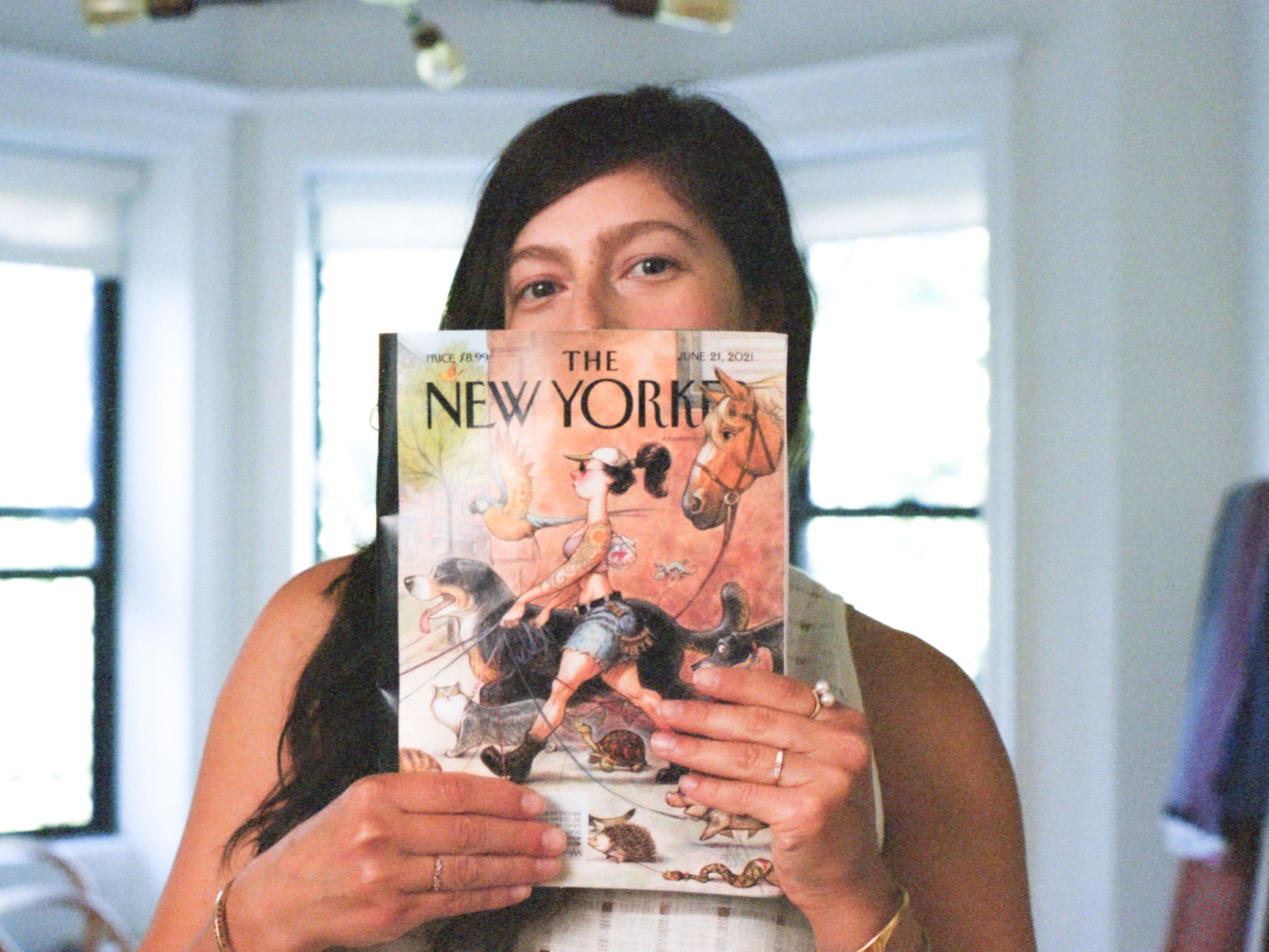The fashion and beauty journalist who believes you can feel two things at once. In her case, she can feel grateful for chemo and sad that she lost her hair.
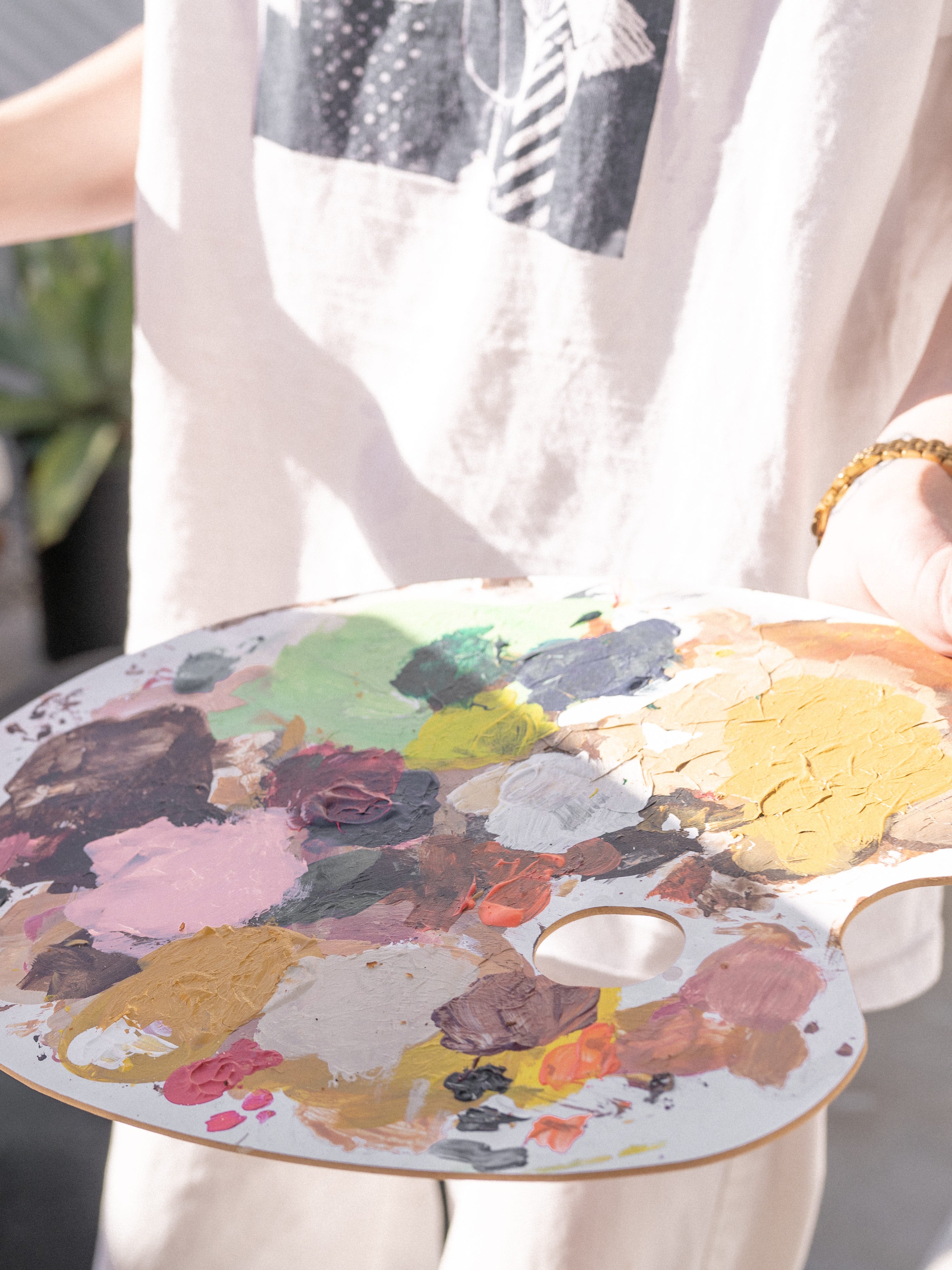
What keeps you grounded?
I do a journaling process that I learned at the Hoffman Process. It’s called a Quadrinity Check-In and they basically divide you into body, intellect, emotion, and spirit. Every morning I check in with that and ask, how does my body feel? Is it tense? Where? Why? And then I say thank you body or whatever part it is. And then I write needs. What does it need? And that is how I start my day, most of the time.
I want to note that investing in these intensive mental health programs is new for me and not something I would’ve done until a couple of years ago. I don’t think everyone needs to do them, and even though I wish it weren’t, I know it’s a real luxury and privilege to attend them. I put off the decision to do Hoffman for many years, but after I’d done it, I realized how impactful it was in every aspect of my life. Some people call it “10 years of therapy in a week,” and I found that to be true. After that positive experience, I was much more open to investing in my well-being and changing my spending habits to prioritize it.

How do you unwind and practice self-care?
Baths are a huge mental health thing for me. And they always have been. Like many people, I feel as if I have to be productive all the time. I had COVID while having cancer and felt like I needed to be doing something, which is nuts. I should relax. So being in the bath is one of the places where I don’t have to do anything.
Also, right now, I’m in a place where I ask myself what I want to do and what feels right. Listening to what my body needs and is something I’m working on. For example, I would like to take more pauses between my speech. I want to give my words and thoughts time and give other people’s words and thoughts time so that I can think about it, digest it, and then respond thoughtfully.
What is meditative for you?
Surfing is my therapy. I have some limitations right now, so I can’t do it as much, but surfing is so meditative for me, similar in a lot of ways to painting. I love when you walk in a little bit and then you get on the board and glide out. It’s one of the best feelings to me.
It definitely connects me to my dad too, because he surfed and I loved talking to him about it. He had dementia, but the thing that he always remembered was my surfing. And so we could hold a conversation months at a time about where I was surfing. I think a lot about how powerful it was that it stayed with him. The act of surfing is one thing, but it also feel like one of the last places where people say hello and acknowledge each other. It’s somewhat social, even if you’re there alone. I like that reminder that we’re all in this together and if you’re struggling, I’ll come help you and vice versa.
Also, I love nature. When I’m somewhere with a lot of trees, like Big Sur, I always try to go forest bathing. It’s a moving meditation that originated in Japan that involves noticing the sights, smells, sounds, and colors around you. There have been studies that even prove forest bathing can activate our bodies’ NK or “Natural Killer” cells, which could potentially help us fight cancer. I’m fascinated by the mind-body connection and try to consider it in everything I do.
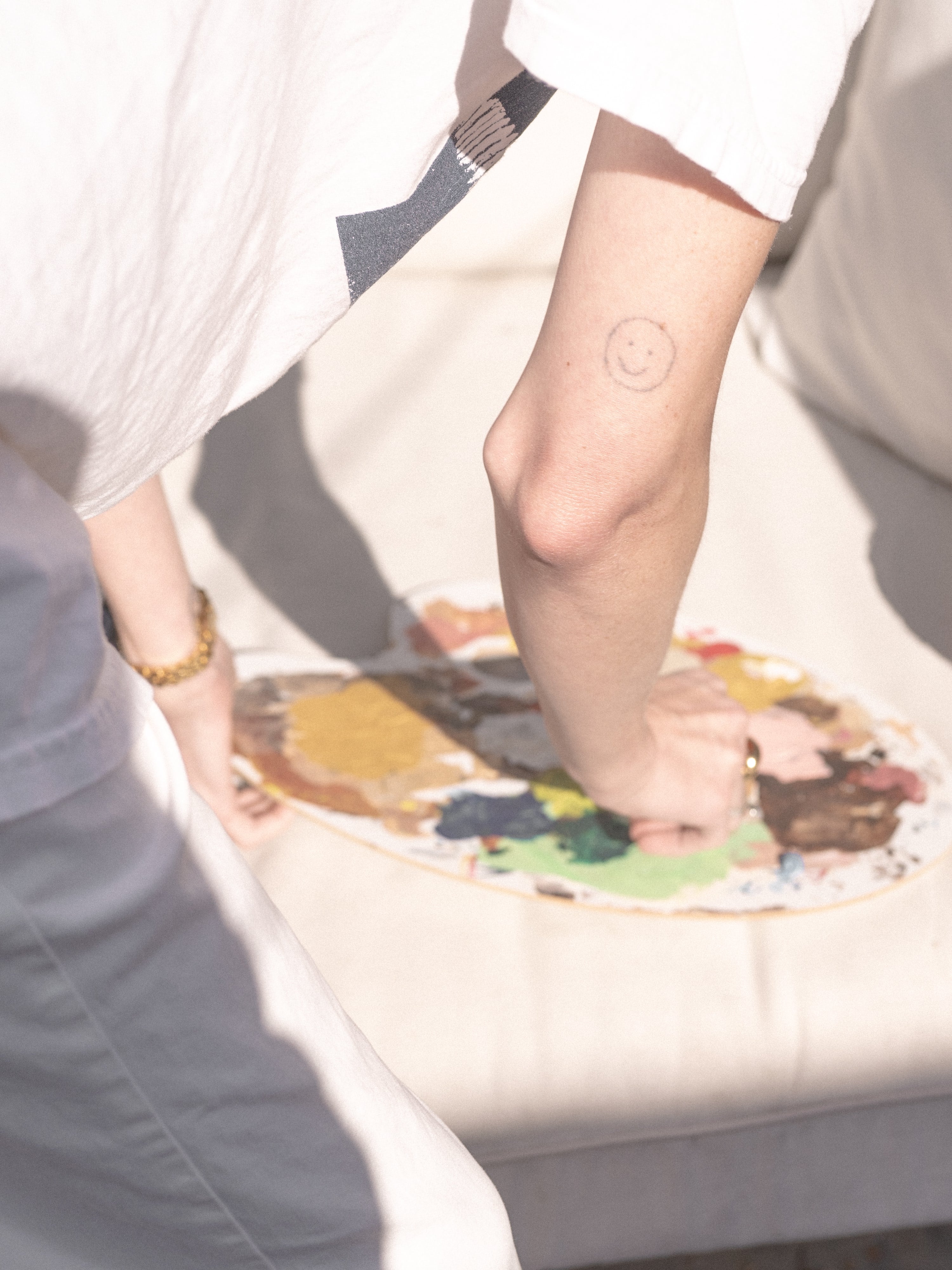
How has your mental health been lately?
I’m definitely in recovery mode. Last year I lost my dad and was diagnosed with cancer within three weeks of each other. And so that was kind of the definition of too much, too fast, as they say. I spent a lot of last year in fight or flight mode and I am just picking up the pieces and starting to feel like myself again. I’m putting a lot of tools that I’ve picked up along the way to work and finally feeling a little more whole.
You shared almost a year about being diagnosed with cancer right after losing your dad, so what gave you the strength to open up about that and have you always been open about personal struggles or was it something that you adopted when you got sick?
It’s definitely new for me. I waited a month after my dad died to tell everyone, but maybe two friends. I waited 3 months after my cancer diagnosis to tell people. In my head, I wasn’t going to tell anyone. I was just going to get through it. It was a pandemic and I was going to have done it and not talk about it. But it got more and more involved and it got to where I was kind of avoiding people. I wouldn’t see people when they would come to LA because I was bald. So I decided to be open about it. It was really scary to open up about my cancer. My heart was racing. I had to actually turn my phone off after I posted. Even though I got a lot of supportive messages, it was really overwhelming.
“I am someone who likes to be there for other people and I like to take care of others.”
And so, for me, last year was a huge lesson in opening up to people and asking for help and being vulnerable in that way. It was definitely a learning experience. It was something I had to take one step at a time. I still feel kind of weird about it. I wouldn’t say I’m a people pleaser, but I’m conscious of the energy I’m bringing into rooms. But on the other hand, I felt guilty because I didn’t want to upset anyone with that news. So it was a lot of give and take and learning for me.
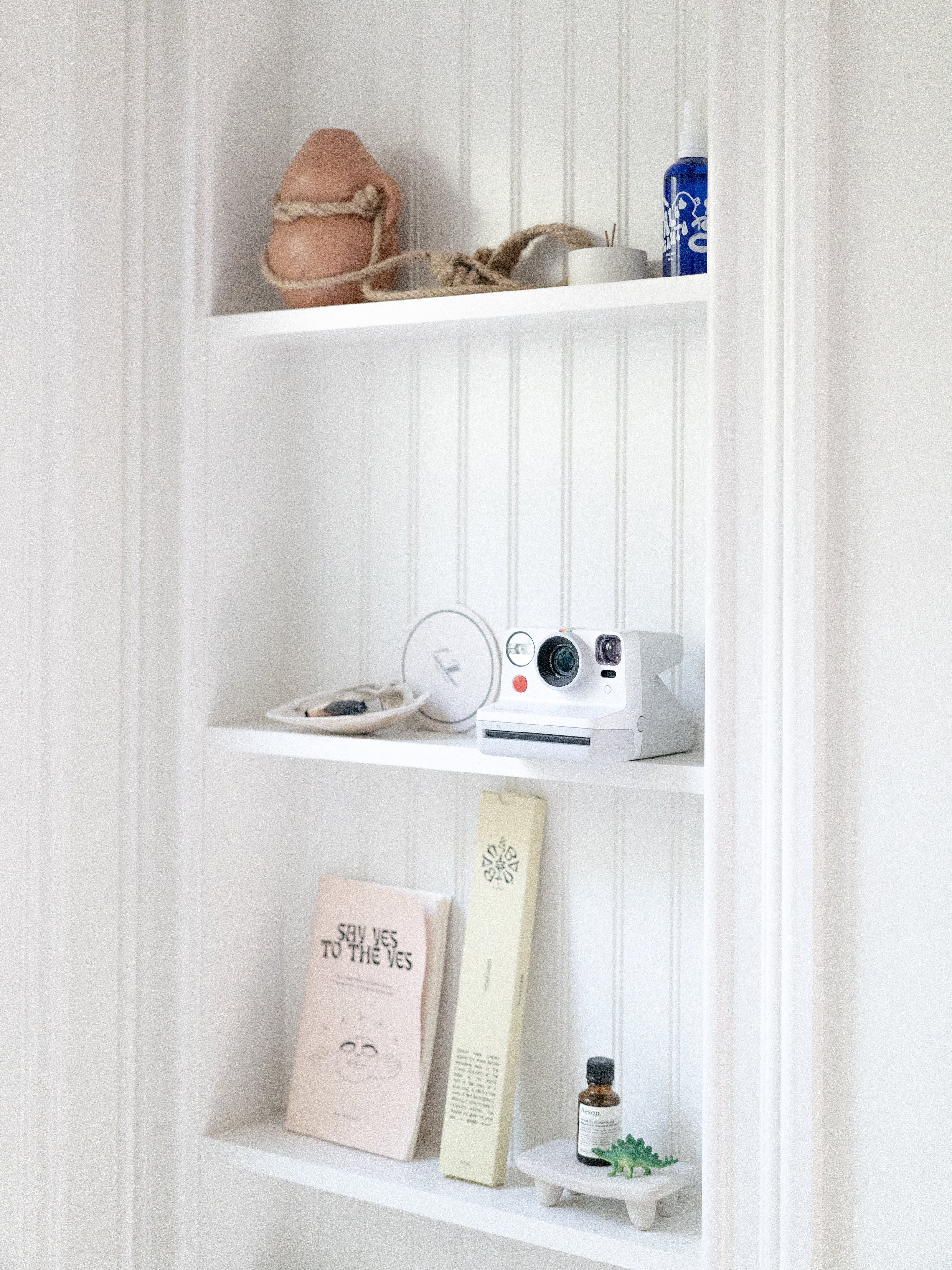
You documented the process of losing your hair, nails, eyebrows, and eyelashes on a polaroid camera. How did that process shift your relationship with yourself? What did it mean for your identity?
Taking those pictures felt different every day. I’m so glad that I documented it. Now that I look back, it was such a whirlwind that I almost wish I had more pictures of myself bald. It’s so easy on your iPhone to delete images if you don’t like them. I didn’t like a lot of pictures that I took on my iPhone, but I’m less tempted to throw a Polaroid away. So I saved those pictures and I’m really glad that I have them now because I can look back and be really proud of how far I’ve come and what I went through.
During chemo, my memory was really impacted and every time I took the picture, I felt different. Some days I stood crying. Luckily you can’t really tell that much detail in Polaroids, but sometimes I was really upset and I wanted to document being upset or that I felt alone. Sometimes I felt like my buzz cut looked cool and I wanted take a picture of it. Sometimes I had a wig on. And there were times when I would dress up for no reason because I felt good enough, so I would document that. When I look back at the pictures, I see all of that.
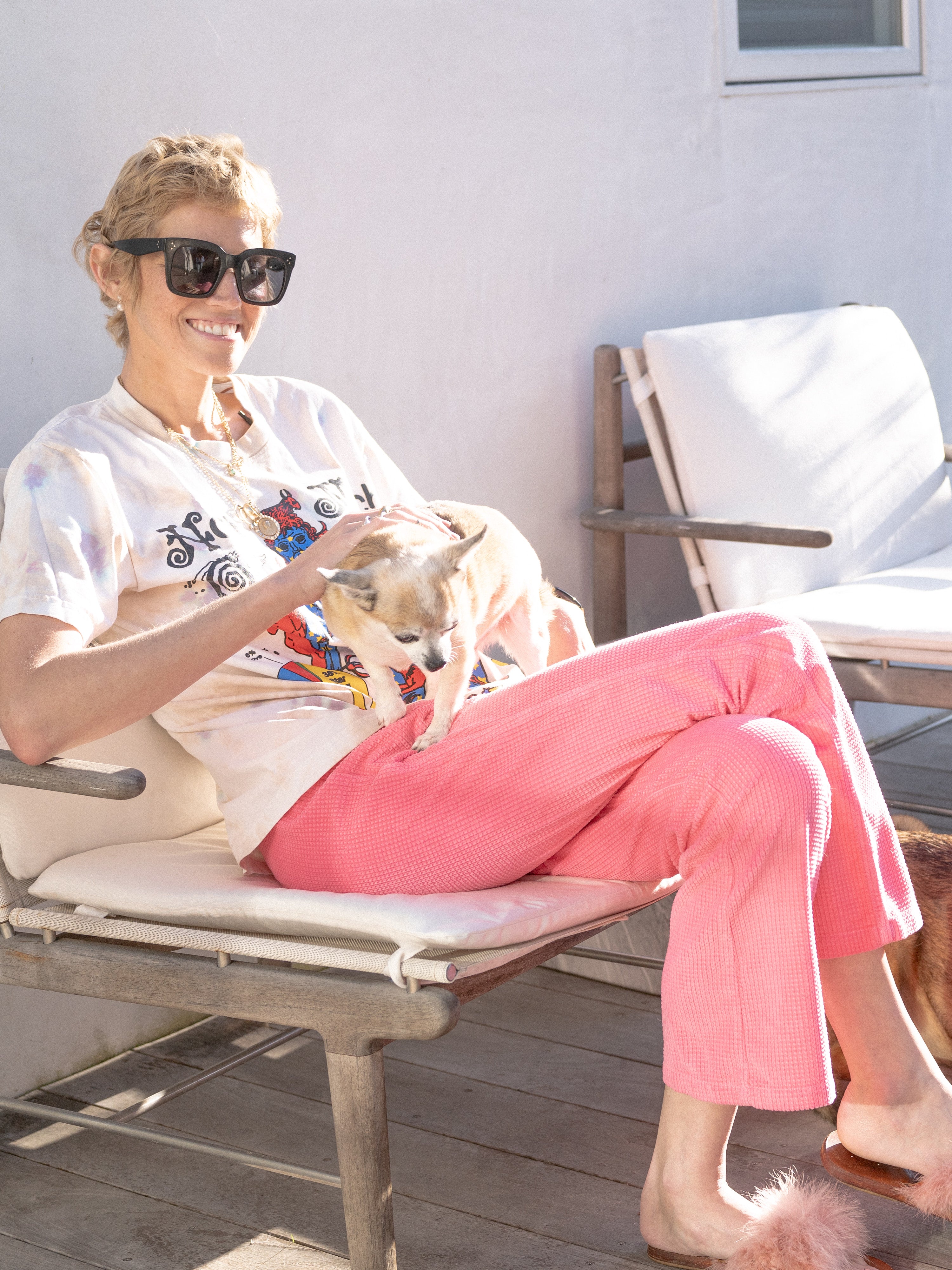
With the polaroids, have you shared them and if so, how did that feel?
I shared a few of them on Instagram and I was really proud. But in terms of all the boxes that hold the polaroids, I’ve only shown one person.
It makes me feel really vulnerable to have people see them. It’s uncomfortable to talk about this right now because I see myself as someone who’s there for other people. Not to say that I don’t care about my own mental health, but I feel like I’m in a position where I can be there for other people. Putting my own pain out there and even being bald going to the grocery store and having people give you a nice nod, it’s very touching and I appreciate it. But at the same time, I’m the strong one who helps everyone. It’s a bit of an identity crisis. And sharing the polaroids or even sometimes when I look at them, I can’t believe the pain that I was in.
How has losing your hair impacted your mental health?
It sounds vain, but there hasn’t necessarily been space for me to care about hair, even though I do. Obviously, with a cancer diagnosis and going through chemo, I was very happy to have access to those drugs and doctors. Every time I went into chemo, I had a ritual where I would say, thank you, chemo. Thank you for this medicine. This is good. This is helping me. And so, even as I lost my hair, I thought about that too. This is the medicine working and I always tried to frame it that way. But at the same time, you can feel two things at once.
I can feel grateful for chemo. And sad that I lost my hair. I had long blonde hair my whole life. It was really strange to have it fall out. And there’s not a lot of space for that to care about the vain or the physical things when there’s more intense stuff going on.
But it was really strange. Especially when nobody knew, I felt like I was disappearing. My nails were falling off. My hair fell out, my eyelashes, my eyebrows fell off. All the things that I felt were a part of me. I looked in the mirror and I thought I have no idea who I am. Watching these physical pieces of myself fall off felt like a movie.
I definitely worked a lot on shame at the Hoffman Process. That was very helpful for me. There’s definitely a stigma around taking medication. I certainly feel that. I took antidepressants many years ago. I almost didn’t because of the stigma and I’m so glad that I did because it was lifesaving.
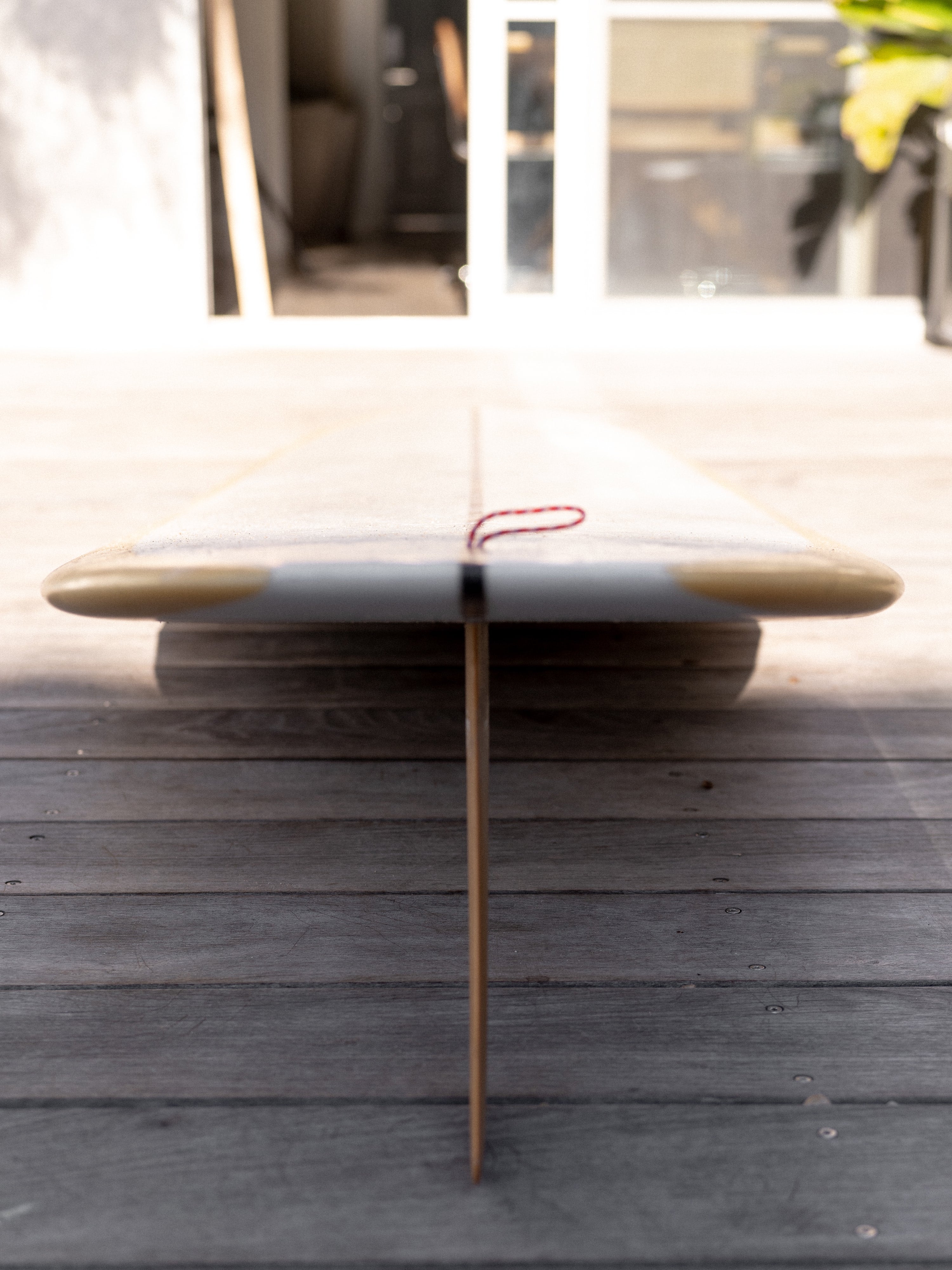
Is there anything that you hold in shame or feel stigma around?
I definitely worked a lot on shame at the Hoffman Process. That was very helpful for me. There’s definitely a stigma around taking medication. I certainly feel that. I took antidepressants many years ago. I almost didn’t because of the stigma and I’m so glad that I did because it was lifesaving.
In my current situation, I didn’t want to take more pills because I take so many already and I’m sick of doctors at this point, but I really needed something and I’m glad that I did. But at the same time, I feel a little ashamed that I wasn’t strong enough. Especially because people talk about cancer survivors being so strong and I don’t feel that way. But medication is really stigmatized in our society. And I don’t know why.
How does intimacy and relationships impact your mental health?
They both feed into each other for me. My partner is the yin to my yang. He is hysterical and greatly helps my mental health. The darkest days of my life, he’s been there making fun of me and it makes me laugh. I love it.
But it’s so not how I act on his darkest day, which is the beauty of our relationship. He helps me to stay grounded or when I’m having a pity party and I don’t need to. He knows when I don’t feel good and I need an extra hug. I notice my mental health suffers when I’m not taking care of myself. I also notice that my relationships and my friendships tend to kind of fall apart a little bit more. And so it really is this cycle that feeds itself and motivates me to do a mental health hygiene check all the time.
